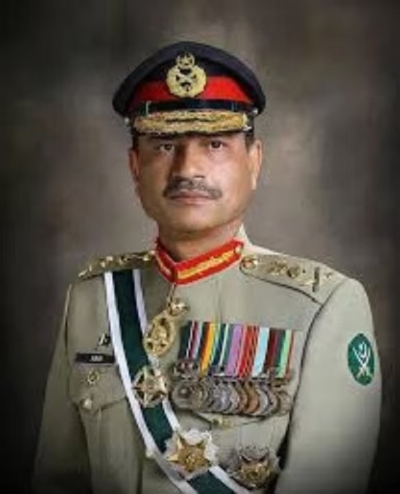Islamabad, (Samajweekly) In the wake of a worsening and gloomy economic situation in Pakistan, the cash-strapped nation’s military establishment has decided to step in with a revival plan through investment commitments from friendly countries worth $100 billion.
Chief of Army Staff (COAS) General Syed Asim Munir has had detailed meetings with the business community in the country’s economic hub Karachi and Punjab’s provincial capital Lahore.
During the meetings, the COAS has assured the community of huge foreign investments landing in Pakistan and also highlighted that the military establishment has taken the driving seat in terms of economic revival and growth of the country going forward.
Briefing at least 50 top businessmen in Karachi, the army chief said that he had put forward the matter in front of Saudi Arabia’s Crown Prince Mohammad Bin Salman (MBS) during his recent visit.
Munir said that he informed MBS that he had not come to ask for $1-2 billion investment but had brought with him a broader long-term investment proposal.
It was after this meeting that Saudi Arabia assured of investing at least $25 billion in Pakistan under the Special Investment Facilitation Council (SIFC), under direct management and supervision of the Pakistan’s Army, with is office situation inside the GHQ (General Headquarters) in Rawalpindi.
The COAS informed the businessmen that the Saudi investment is aimed at Pakistan’s agricultural sector by offering land and ensuring exports.
He also stated that he has asked the Saudi Corwn Prince to set aside at least $10 billion to overcome the country’s foreign exchange issues, which he added, would be returned in Pakistani rupees or through export settlements.
The Army Chief has also received an assurance from the United Arab Emirates (UAE) for provision of at least $10 billion for improving foreign exchange reserves and an additional $25 billion investment in various sectors of Pakistan.
Additionally, Munir informed the business community that another $25 to $30 billion investment is also going to come from Kuwait and Qatar, assurance of which will be confirmed during his next visit.
Overall, the total foreign investment is about $100 billion.
Munir assured businessmen that as the investments would be coming under the SIFC and would be managed and controlled by the military establishment itself; there would be no issues faced by the community from the bureaucracy or the judiciary, insisting that business opportunities would be vast and progressive to explore in the coming days.
He also gave a similar briefing to the Lahore Chamber of Commerce and Industry (LCCI) business community, which is being seen as a confidence-building step for the country’s economic situation.
The COAS told the business community that a strong action will be taken against all those elements involved in corruption, hoarding of dollar and the illegal smuggling of Iranian oil from the borders into Pakistan.
While the meetings were termed as highly encouraging for the businessmen, is it being argued that the military establishment is bypassing many legal frameworks and international binding including that of the International Monetary Fund (IMF) and seems willing to work singularly into matter of economy, which would go parallel with the serious challenges on the security front.
“The Army chief is taking a major task into his own hands. But the question is, how will this impact the IMF programme? How will the illegal trade of oil and other items from Iran be stopped? How will you tap the forex exchange market and bring them under tax ambit? How will the millions of un-registered Afghans living in Pakistan be identified and sent back? How will these investments be monitored? This is a far bigger and challenging task. Easier said than done,” says Amir Khan, an economist.
While the criticism is being kept cautiously placed, the optimism of the army chief and the confident support he has gotten from the business community, has given a ray of hope to the country, whose economic woes are swelling with every passing day.










